Orthotics to Help Strengthen and Straighten Kids’ Ankles – The Best Alternative to Custom Orthotics!
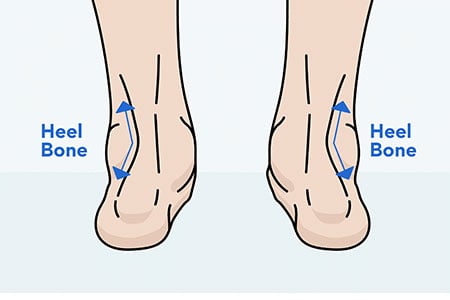
Do you have a child that has been diagnosed with rolled ankles? Has your child been complaining about heel pain? There is a particular type of orthotic that has proven to be the most effective one when it comes to strengthen and straighten kids’ ankles. This orthotic will also help improve your child’s overall posture by preventing your kids’ feet from collapsing and turning inwards.
An orthotic is a shoe insert that is designed to provide cushioning, support, and stability, and to relieve pressure areas of the foot. Orthotics can also be referred to as shoe inserts, orthoses, or orthotic insoles.
Most parents assume that overpronation occurs from having flat feet, but overpronation can also occur from having rolled ankles. Below are some examples of children with rolled ankles:
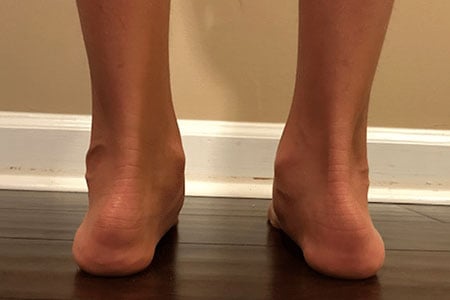
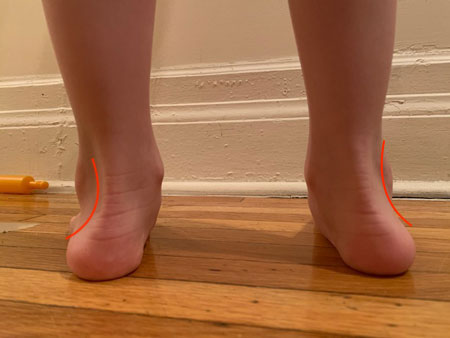
If your child has been diagnosed with rolled ankles and has been experiencing ankle and heel pain, the correct pair of orthotics will help significantly reduce or fully eliminate your child’s heel pain. In addition, the correct type of orthotic will also help improve your child’s overall posture. Let me prove it to you!
What a Difference the Correct Type of Orthotics Can Make!
Let’s take a look at a picture of a child with rolled ankles standing barefoot and then standing on a pair of the orthotics that I recommend.
Below is an image of a child with a low arch and rolled ankles, do you notice how her feet are collapsing and turning inwards?
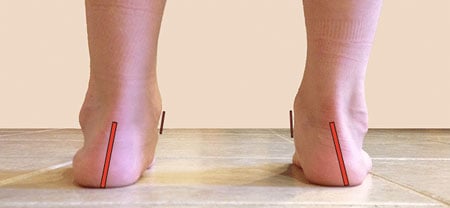
Now let’s take a look at an image of the same child standing in a pair of the orthotics that I recommend. Do you notice how straighter the feet look?
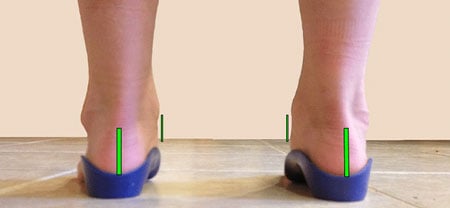
The main difference between being flat-footed and having rolled ankles is that an orthotic won’t mold your child’s arch, but an orthotic will be able to straighten and strengthen your kids’ ankles.
Before I show the best orthotic to help treat and correct your child’s rolled ankles, I want to show you 3 important features that this orthotic provides.
What Makes the Orthotic I Recommend Effective Rolled Ankles?
1️⃣ 30mm heel cup helps control heel alignment, lower leg alignment, and supports the arch.
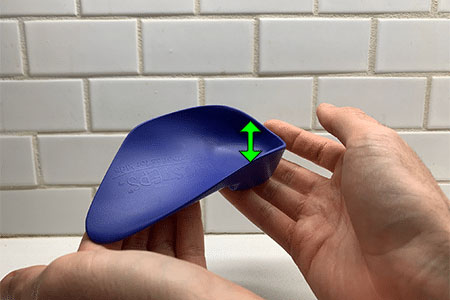
2️⃣ Medial and lateral flanges help keep the foot aligned in the orthotic.
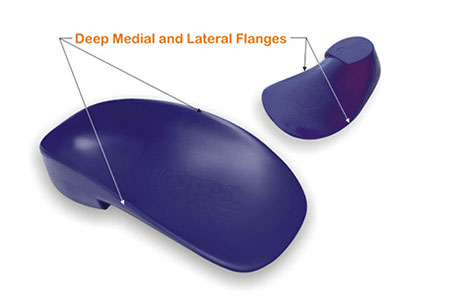
3️⃣ Metatarsal support to help relieve and prevent ball of the foot pain.

The orthotic that I recommend is designed to correct the misalignment caused by flat feet and rolled ankles. Regular insoles are specifically designed to provide cushioning and shock absorption, but they won’t help prevent and correct your child’s rolled ankles.
Now that you know what features this orthotic provides, you are ready to take a look at the best orthotic that helps strengthen and straighten your kids’ ankles.
Best Orthotics to Help Strengthen and Straighten Kids’ Ankles: littleSTEPS
1️⃣ Deep heel cup that helps control the alignment of the heel and lower leg.
2️⃣ Medial and lateral flanges to help keep the foot aligned over the orthotic.
You Must Enter a Referral Code to Order this Orthotic
To place an order for littleSTEPS® Orthotics, you must submit a Referral Code in the Discount Window during the ordering process: JVFCS100121
Do You Need to Remove the Original Insoles of Your Kids’ Shoes?
No, you won’t have to remove the original insoles of your child’s shoes before placing this orthotic inside the shoes.
What Orthotic Size Should You Order?
Take a look at the chart below to figure out what size to order based on your child’s shoe size:
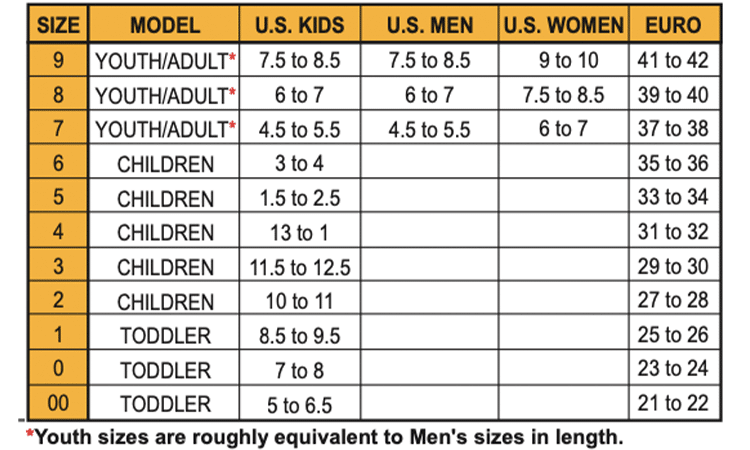
Please note that custom orthotics can range anywhere from $250 to $500. Even families with good insurance have reported that custom orthotics are usually not covered.
One common complaint parents have about this orthotic style is how it slides forward inside certain shoe styles. This is the reason why I always recommend shoes with shoelaces over velcro closure, especially when the child needs an orthotic to be fitted inside the shoes.
Orthotics will only work in certain types of shoes, that is the reason why I also provide a selection of the best shoes for orthotics.
Best Shoes for Orthotics – Extra Deep, Rounder Toe-Boxes and Supportive!
Orthotics make a tremendous difference in the way that your child walks and runs, as long as the orthotics are fitted properly inside your kids’ shoes.
In addition to providing good ankle support, the orthotic must also be fitted in the correct pair of shoes. This means that the shoes must come with a firm heel counter. The heel counter is the back part of the shoes that provides ankle support, and the firmer it is, the better. Take a look at the picture below to identify where the heel counter of the shoe is located:
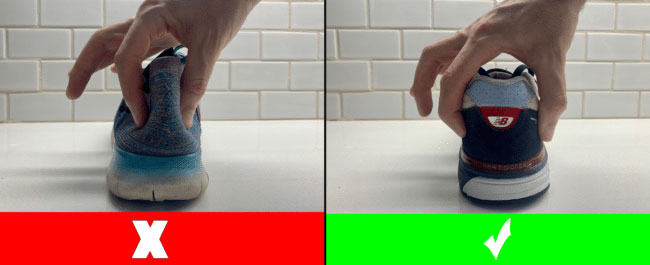
The shoes and the orthotics work together in preventing and helping treat your child’s foot conditions. This means that if you provide your child with a pair of orthotics that provide good support but the shoes are too flimsy and unsupportive, your child won’t get any of the benefits that the orthotics have to offer and vice versa.
Orthotics take up a lot of space inside the shoes, which means that sometimes you might have to provide your child with a pair of wider shoes to accommodate the orthotic inside the shoes.
In addition to being supportive, these are 2 key features that the shoes must provide to be able to accommodate the orthotics:
1️⃣ Extra Depth: This feature allows the orthotics to sit deeply inside your kids’ shoes, which helps prevent your kids from getting the impression that their feet are coming out of the shoes. Let me show you the difference between a deep pair of shoes and one that is shallow. For better visualization purposes, there is an orthotic fitted in both of the shoes below. Do you notice how the orthotic is sitting much deeper in the shoe on the right image compared to the shoe in the left image?
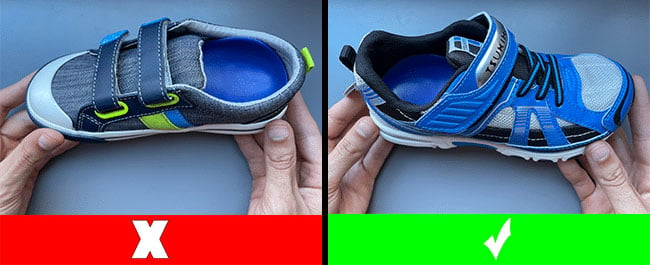
2️⃣ Round Toe-Box: This feature helps prevent the orthotic from poking a hole in the front part of the shoes.
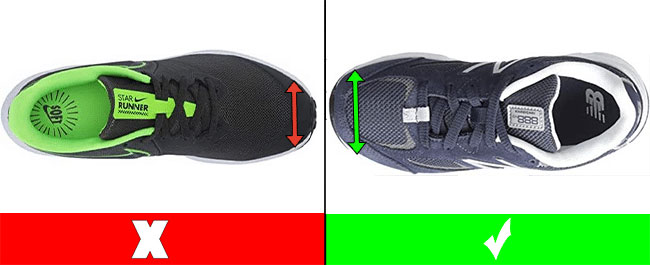
I always recommend shoes that come with shoelaces instead of velcro closure, as shoelaces will provide better support to your child’s feet, in particular around your child’s ankles. Disclosure: Some links in this post may be affiliate links and we may receive a small commission (at no extra cost to you) when you click our links and make purchases.
The Best Shoes for Orthotics
Below you can find a selection of the best shoes for orthotics that are available in medium (M), wide (W), and extra wide (XW).
- The New Balance shoe style 990V6 is available for toddlers, little, and big kids
- Available in laces and velcro
- Fits children with medium, wide, or extra wide feet
- Suede/mesh upper provides durability and breathability
- Order this shoe half a size larger than your toddler’s current foot size
- The New Balance shoe style 990V6 is available for toddlers, little, and big kids
- Available in laces and velcro
- Fits children with medium, wide, or extra wide feet
- Synthetic/mesh upper provides durability and breathability
- Order this shoe half a size larger than your toddler’s current foot size
- The Stride Rite shoe style Elliot is available for toddlers
- Lace-up closure
- Fits toddlers with medium, wide, or extra wide feet
- 100% leather made
- Order this shoe half a size larger than your toddler’s current foot size
- The Stride Rite shoe style Emilia is available for toddlers
- Lace-up closure
- Fits toddlers with medium, wide, or extra wide feet
- 100% leather made
- Order this shoe a whole size larger than your toddler’s current foot size
- The Timberland shoe style Tracks is available for toddlers
- Double velcro straps
- Fits toddlers with medium or wide feet
- Water-friendly
- Order this shoe a whole size larger than your toddler’s current foot size
- The New Balance shoe style 574 is available for toddlers
- Available in velcro and laces
- Fits children with medium, wide, or extra wide feet
- Synthetic/mesh upper provides durability and breathability
- Order this shoe a whole size larger than your toddler’s current foot size
- The New Balance shoe style 990V6 is available for toddlers, little, and big kids
- Available in velcro and laces
- Fits children with medium, wide, or extra wide feet
- Synthetic/mesh upper provides durability and breathability
- Order this shoe a half size larger than your toddler’s current foot size
- The Memo shoe style Gabi is available for toddlers and little kids
- Double velcro straps
- Fits children with medium or wide feet
- Genuine leather and breathable mesh
- Thermoplastic asymmetric stiff heel counter for proper feet protection and stabilization
- Order this shoe half a size larger than your toddler’s current foot size
- The Memo shoe style Gabi is available for toddlers and little kids
- Double velcro straps
- Fits children with medium or wide feet
- Genuine leather and breathable mesh
- Thermoplastic asymmetric stiff heel counter for proper feet protection and stabilization
- Order this shoe half a size larger than your toddler’s current foot size
- The Saucony shoe style Cohesion is available for toddlers
- Velcro closure
- Fits toddlers with medium or wide feet
- Heel grid system for stable cushioning
- Compression molded EVA footbed for comfort
- Order this shoe a whole size larger than your toddler’s current foot size
- The Timberland shoe style Bootie fits toddlers and little kids
- Double velcro straps
- Fits children with medium or wide feet
- Padded collar for a comfortable fit around the ankle
- Water-friendly
- Order this shoe a whole size larger than your toddler’s current foot size
- The Memo shoe style Princessa fits toddlers and little kids
- Double velcro straps
- Fits children with medium or wide feet
- This is an ORTHOPEDIC shoe
- Rigid heel counter
- Order this shoe half a size larger than your toddler’s current foot size
- The Saucony shoe style Cohesion KDZ is available for little and big kids
- Velcro closure
- Fits children with medium and wide feet
- Heel grid system for stable cushioning
- Compression molded EVA footbed for comfort
- Order this shoe a half size larger than your child’s current foot size
- The Saucony shoe style Cohesion KDZ is available for little and big kids
- Velcro closure
- Fits children with medium and wide feet
- Synthetic and mesh upper
- Heel grid system for stable cushioning
- Order this shoe half a size larger than your child’s current foot size
- The New Balance shoe style Fresh Foam 650 is available for little and big kids
- Fits children with medium, wide, or extra wide feet
- Velcro closure
- ABZORB midsole absorbs impact through a combination of cushioning and compression resistance
- Mesh upper material features no-sew overlays for a sleek fit and feel
- Order this shoe half a size larger than your child’s current foot size
- The New Balance shoe style Fresh Foam Arishi v4 is available for little and big kids
- Fits children with medium, wide, or extra wide feet
- Velcro closure
- ABZORB midsole absorbs impact through a combination of cushioning and compression resistance
- Mesh upper material features no-sew overlays for a sleek fit and feel
- Order this shoe half a size larger than your child’s current foot size
- The New Balance shoe style 2002 is available for toddlers and little kids
- Available in laces
- Fits children with medium and wide feet
- Suede/mesh upper provides durability and breathability
- Order this shoe half a size larger than your toddler’s current foot size
- The New Balance shoe style 2002 is available for toddlers and little kids
- Available in laces
- Fits children with medium and wide feet
- Suede/mesh upper provides durability and breathability
- Order this shoe half a size larger than your toddler’s current foot size
- The New Balance shoe style Fresh Foam 650 is available for little and big kids
- Fits children with medium, wide, or extra wide feet
- Velcro closure
- Synthetic and engineered mesh upper
- Fresh Foam midsole cushioning is precision engineered to deliver an ultra-cushioned, lightweight ride
- Order this shoe a half size larger than your child’s current foot size
- The Memo shoe style Polo is available for little and big kids
- Triple velcro straps
- Fits children with medium or wide feet
- This is an orthopedic shoe
- Thermoplastic rigid heel counter
- Order this shoe a half size larger than your child’s current foot size
- The Memo shoe style Chicago is available for little and big kids
- Triple velcro straps
- Fits children with medium or wide feet
- This is an orthopedic shoe
- Thermoplastic rigid heel counter
- Order this shoe a half size larger than your child’s current foot size
- The New Balance shoe style Coco is available for little and big kids
- Lace-up closure
- Fits children with medium or wide feet
- NDurance rubber outsole technology provides superior durability in high-wear areas to help get more out of the shoes
- Order this shoe a half size larger than your child’s current foot size
- The Adidas shoe style Own the Game 2.0 is available for little and big kids
- Lace-up closure
- Fits children with medium or wide feet
- Supportive outsoles and firm heel counter
- Order this shoe a half size larger than your child’s current foot size
- The Adidas shoe style Cross Em Up Select is available for little kids
- Lace-up closure
- Fits children with medium or wide feet
- Non-marking outsole
- Order this shoe a whole larger than your child’s current foot size
- The Saucony shoe style Kinvara LTT is available for little and big kids
- Lace-up closure
- Fits children with medium or wide feet
- Cushioned footbed
- Order this shoe a whole size larger than your child’s current foot size
- The Saucony shoe style Shadow 6000 is available for little and big kids
- Lace-up closure
- Fits children with medium or wide feet
- Cushioned footbed
- Order this shoe half a size larger than your child’s current foot size
- The New Balance shoe style 574 is available for little and big kids
- Lace-up closure
- Fits children with medium or wide feet
- ENCAP midsole cushioning provides good arch and heel support
- Order this shoe half a size larger than your child’s current foot size
- The New Balance shoe style 327 is available for little and big kids
- Lace-up closure
- Fits children with medium or wide feet
- Suede and mesh upper
- Order this shoe a whole size larger than your child’s current foot size
- The New Balance shoe style Fresh Foam X 1080v13 is available for big kids
- Lace-up closure
- Fits children with medium or wide feet
- Suede and mesh upper
- Order this shoe half a size larger than your child’s current foot size
- The New Balance shoe style Fresh Foam X 1080v13 is available for big kids
- Lace-up closure
- Fits children with medium or wide feet
- Suede and mesh upper
- Order this shoe half a size larger than your child’s current foot size
I strongly suggest that you apply this shoe lacing technique to prevent heel slippage and allow your child to get the full benefits of the orthotics.
Looking for Other Boot Recommendations? – Get a Personalized Suggestion
If none of these shoes are available in your child’s shoe size or if you need the shoes to be made of a specific color don’t hesitate to email me at:
When children experience foot or leg pain, most parents make the common mistake of not addressing the issue and they have their children tested for several other conditions that are unrelated to the shoes that they are wearing.
Before you start having your children tested for other conditions, start by taking a look at their feet and provide them with a pair of orthotics and supportive shoes. You will notice what a tremendous difference they make!
Please leave your feedback in the comments section below.


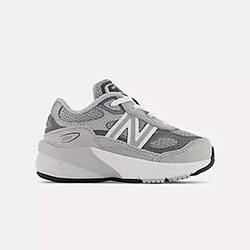

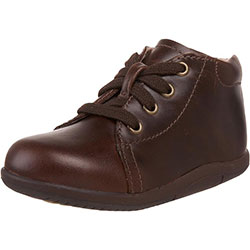
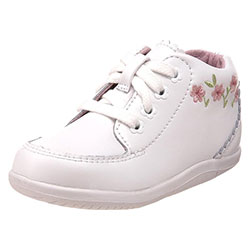
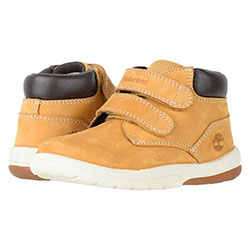
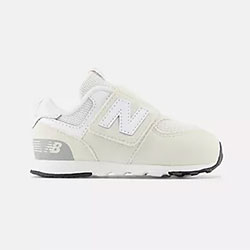
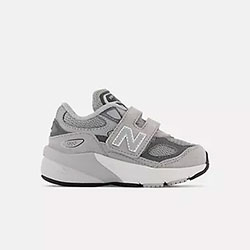
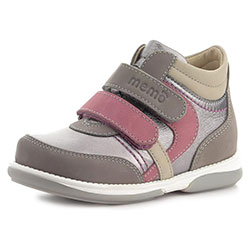
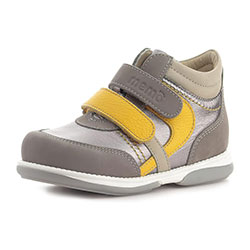
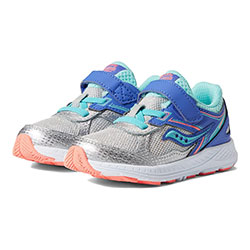
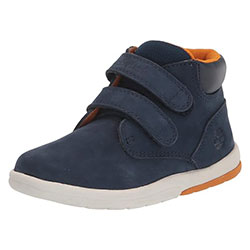
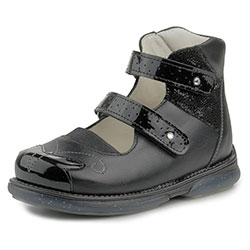




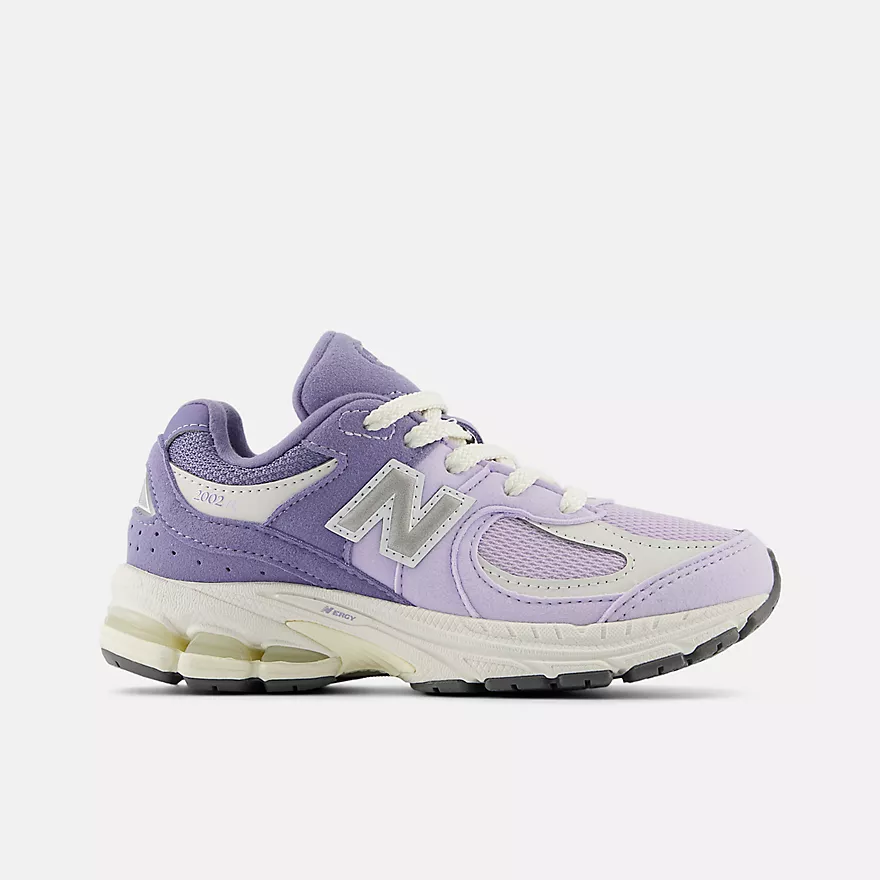
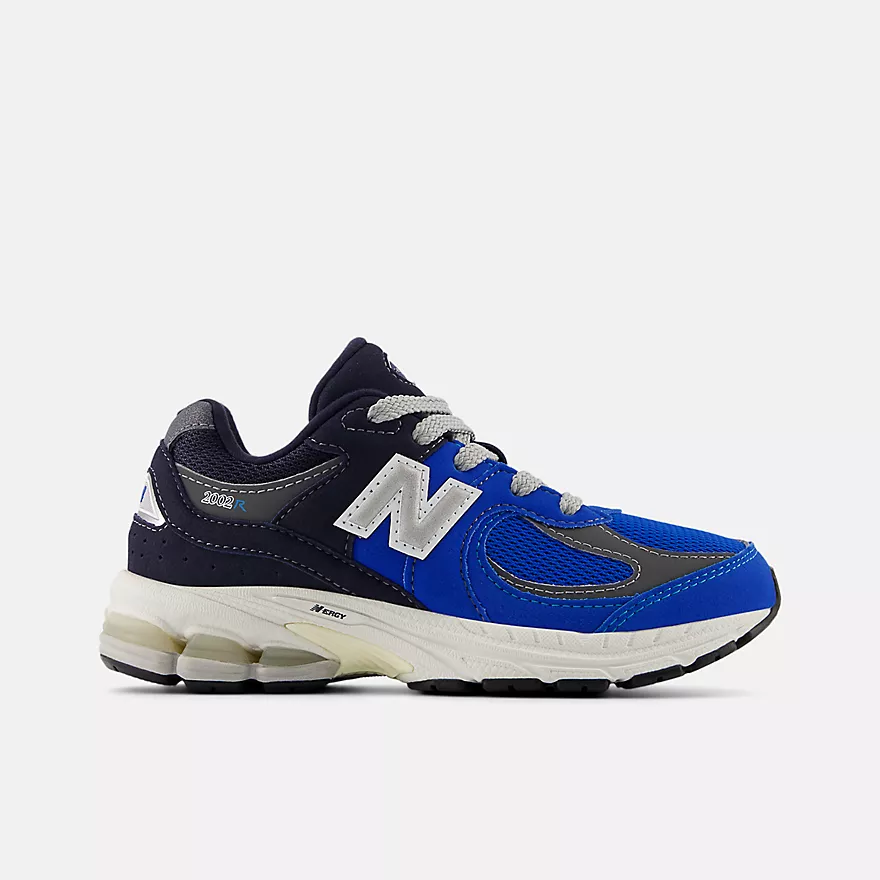

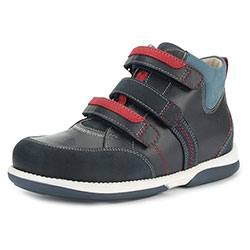
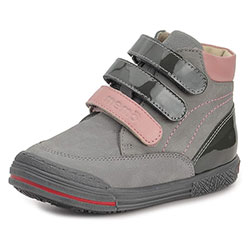
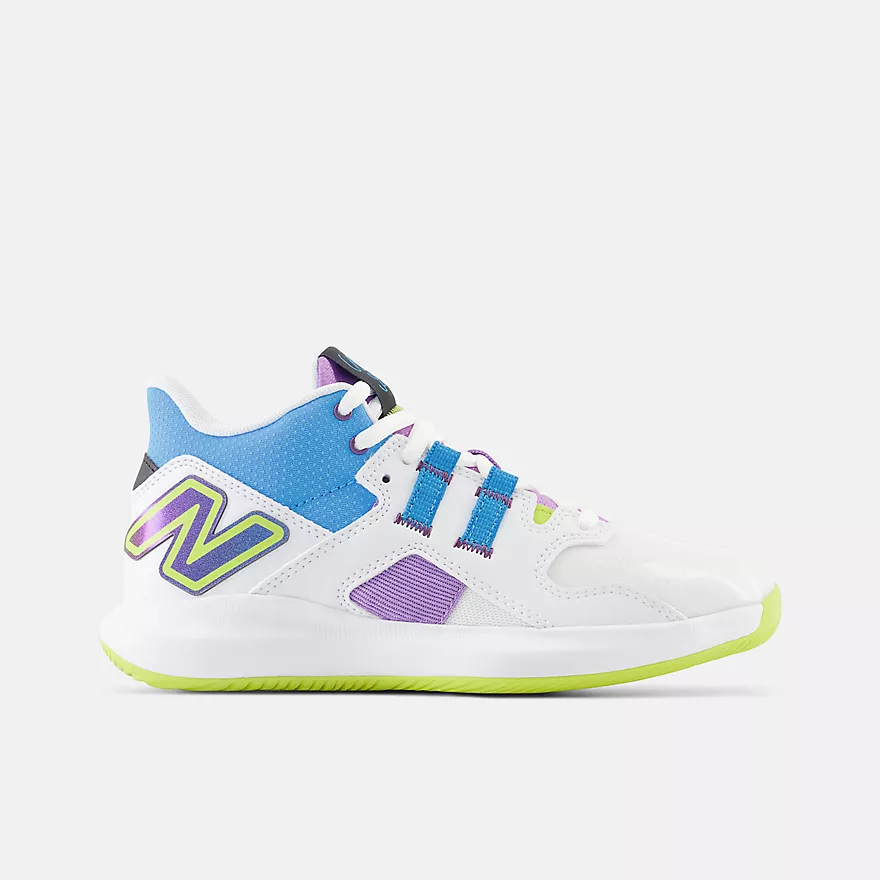
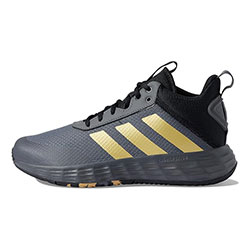
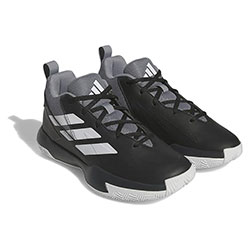



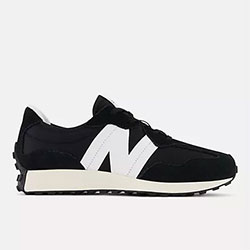


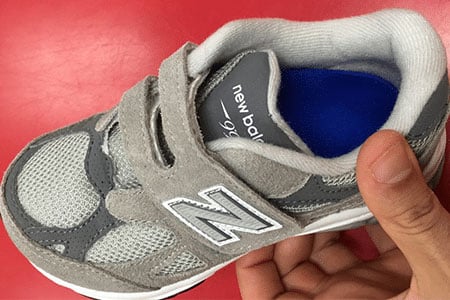
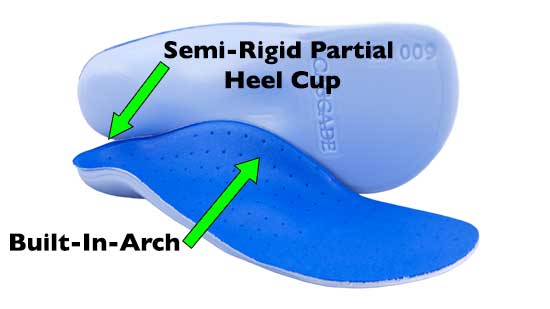
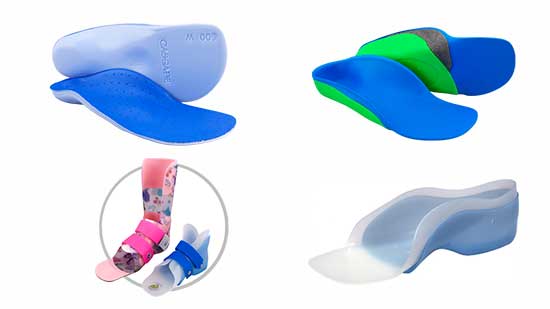
Do you have a recommendation for sandals with this same support?
Hi Debby,
The Keen Newport is usually my go-to sandal for kids with ankle pain. The sandal comes with a substantial outsole and targeted support right below the heel. It really depends on the degree of your child’s foot condition but it’s worth trying.